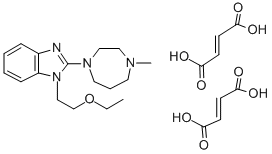Therefore, the overexpression of  WRAP53 protein appears to play an important role in the progression of ESCC. In conclusion, our results have shown that the expression of WRAP53, the natural antisense transcript to p53, is significantly upregulated at the level of both mRNA and protein in ESCC tissues compared with non-neoplastic esophageal mucosa tissues. Overexpression of WRAP53 correlated with tumor infiltration depth, clinical stage, and lymph node metastasis. Therefore, WRAP53 may play a significant role in the development and progression of ESCC. Thus, WRAP53 could be a useful biomarker for ESCC and could represent a potential target for treatments of this disease. Glioblastoma is the most malignant primary brain tumor in adults with an overall survival rate of about 1.5 years even when treated with radical regimens including surgical resection, and radiotherapy with concomitant and/or adjuvant temozolomide chemotherapy. Although the exact mechanism of GBM development and progression is still unknown, certain molecular biomarkers are related to tumorigenesis and progression of GBM at the genetic, epigenetic, and transcriptional levels. However, markers for GBM that have prognostic value in signaling transduction pathways have not been fully elucidated yet.The Janus kinase/signal transducer and activator of transcription 3 signaling pathways transmits extracellular signals into the nucleus where it regulates DNA transcription and activity in the cell. The suppressor of cytokine signaling 3 is an endogenous inhibitor of the JAK/STAT3 signaling pathway, modulating cell activities via suppressing transcription. Recently, some studies have reported that SOCS3 functions as a tumor suppressor in multiple tumor types, including GBM. DNA methylation is a precisely regulated process in normal cells that becomes drastically modified in cancer cells. Atractylenolide-III Hypomethylation of oncogene promoters and hypermethylation of tumor suppressor gene promoters are pivotal alterations in cancer development. Moreover, DNA methylation is typically a stable and inheritable epigenetic pattern that can persist for several cell generations, which potentially broadens its clinical practical applicability. Hypermethylation of oncogenic genes is a favorable indictor for GBM patients. A variety of studies have reported that hypermethylation of the SOCS3 promoter predicts poor prognosis in certain cancers, including GBM. However, in our study, hypermethylation of the SOCS3 promoter was Benzoylpaeoniflorin associated with better outcomes for GBM patients. In addition, we found that hypermethylation of the SOCS3 promoter in GBM was tightly associated with the G-CIMP-positive GBM patients. Glioblastoma is the most malignant primary brain tumor in adults, with insidious development, rapid progression and poor outcomes. Alterations in cell signaling pathways may be associated with the development and progression of GBM. Some prognostic bio-markers involved in signaling pathways have been identified. Hypermethylation of the SOCS3 promoter has been associated with a poor outcome for GBM. From our present research, we draw an opposite conclusion to previous studies and show that hypermethylation of the SOCS3 promoter predicts an improved prognosis for GBM patients.
WRAP53 protein appears to play an important role in the progression of ESCC. In conclusion, our results have shown that the expression of WRAP53, the natural antisense transcript to p53, is significantly upregulated at the level of both mRNA and protein in ESCC tissues compared with non-neoplastic esophageal mucosa tissues. Overexpression of WRAP53 correlated with tumor infiltration depth, clinical stage, and lymph node metastasis. Therefore, WRAP53 may play a significant role in the development and progression of ESCC. Thus, WRAP53 could be a useful biomarker for ESCC and could represent a potential target for treatments of this disease. Glioblastoma is the most malignant primary brain tumor in adults with an overall survival rate of about 1.5 years even when treated with radical regimens including surgical resection, and radiotherapy with concomitant and/or adjuvant temozolomide chemotherapy. Although the exact mechanism of GBM development and progression is still unknown, certain molecular biomarkers are related to tumorigenesis and progression of GBM at the genetic, epigenetic, and transcriptional levels. However, markers for GBM that have prognostic value in signaling transduction pathways have not been fully elucidated yet.The Janus kinase/signal transducer and activator of transcription 3 signaling pathways transmits extracellular signals into the nucleus where it regulates DNA transcription and activity in the cell. The suppressor of cytokine signaling 3 is an endogenous inhibitor of the JAK/STAT3 signaling pathway, modulating cell activities via suppressing transcription. Recently, some studies have reported that SOCS3 functions as a tumor suppressor in multiple tumor types, including GBM. DNA methylation is a precisely regulated process in normal cells that becomes drastically modified in cancer cells. Atractylenolide-III Hypomethylation of oncogene promoters and hypermethylation of tumor suppressor gene promoters are pivotal alterations in cancer development. Moreover, DNA methylation is typically a stable and inheritable epigenetic pattern that can persist for several cell generations, which potentially broadens its clinical practical applicability. Hypermethylation of oncogenic genes is a favorable indictor for GBM patients. A variety of studies have reported that hypermethylation of the SOCS3 promoter predicts poor prognosis in certain cancers, including GBM. However, in our study, hypermethylation of the SOCS3 promoter was Benzoylpaeoniflorin associated with better outcomes for GBM patients. In addition, we found that hypermethylation of the SOCS3 promoter in GBM was tightly associated with the G-CIMP-positive GBM patients. Glioblastoma is the most malignant primary brain tumor in adults, with insidious development, rapid progression and poor outcomes. Alterations in cell signaling pathways may be associated with the development and progression of GBM. Some prognostic bio-markers involved in signaling pathways have been identified. Hypermethylation of the SOCS3 promoter has been associated with a poor outcome for GBM. From our present research, we draw an opposite conclusion to previous studies and show that hypermethylation of the SOCS3 promoter predicts an improved prognosis for GBM patients.
DNA methylation is a common regulatory process which influences cell activities including transcription
Leave a reply